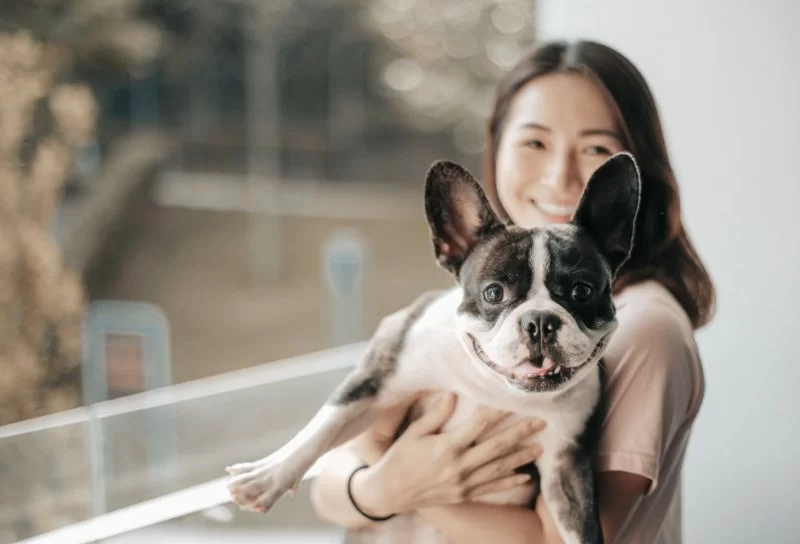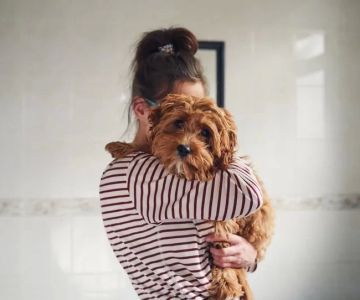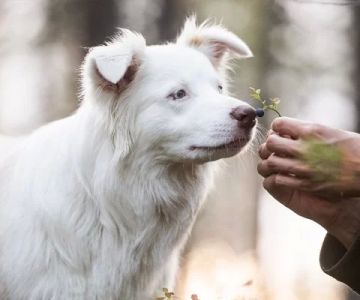Managing Pet Anxiety During Social Events: A Guide for Pet Owners
Pets, particularly dogs, can experience anxiety during social events. Whether it's a family gathering, a party, or a large public event, many pets find the increased noise, unfamiliar faces, and bustling environment overwhelming. Pet anxiety during these times can manifest in various ways, from excessive barking and hiding to destructive behaviors or even physical symptoms like trembling. As pet owners, it's crucial to understand how to manage your pet's anxiety effectively during social events to ensure their comfort and well-being. In this article, we’ll explore the causes of pet anxiety during social gatherings and offer practical solutions to help ease their stress.
1. Understanding the Causes of Pet Anxiety During Social Events
Pets, especially dogs, are naturally sensitive to changes in their environment. A social event involves many new stimuli that may overwhelm your pet. There are several reasons why a pet might feel anxious during a social gathering:
- Unfamiliar faces and sounds: Pets are often nervous around strangers, and large groups of unfamiliar people can heighten their anxiety. Loud noises, such as music, laughter, or children playing, can also contribute to stress.
- Separation anxiety: For some pets, the presence of many people may make them feel like they’re losing connection with their primary caregiver. Separation anxiety can cause excessive barking, whining, or attempts to escape.
- New environments: Even if your pet is familiar with social events, different settings or unfamiliar locations can trigger anxiety. The change in routine or environment can be disorienting.
- Lack of control: Social events often limit your pet's ability to retreat to a safe, familiar space. This can be distressing for pets who feel more secure in their usual environments.
2. Signs of Pet Anxiety During Social Events
Recognizing the signs of anxiety in pets is the first step toward managing their stress during social events. While each pet is unique, common signs of anxiety in pets include:
- Excessive barking or meowing: This can be a way for pets to express their discomfort or alert you to their unease.
- Shaking or trembling: Physical signs of anxiety like shaking are often seen in pets who are scared or nervous.
- Hiding or retreating: Many pets seek out quiet corners or try to hide when they feel overwhelmed by the noise or number of people around them.
- Destructive behaviors: Chewing furniture, clawing at doors, or other forms of destruction can be a sign of anxiety, especially if these behaviors occur when the pet is left alone or stressed by the event.
- Loss of appetite or digestive issues: Stress can affect a pet’s appetite and digestion, leading to a decreased interest in food or digestive upset.
3. Tips for Reducing Pet Anxiety During Social Events
Fortunately, there are several strategies that pet owners can use to help reduce anxiety during social events. Here are some practical tips to make your pet feel more at ease:
1. Create a Safe Space
Ensure that your pet has access to a quiet, safe space during the event. This could be a separate room with their bed, familiar toys, and water. A crate or a designated “safe zone” with calming music or white noise can help them feel secure. If your pet needs a break from the noise, guide them to this space and allow them to relax in peace.
2. Introduce Gradual Exposure
If your pet is not accustomed to social events, it can help to gradually introduce them to such situations. Start with smaller gatherings and gradually increase the number of guests or the noise level. This helps your pet build tolerance to the new experiences without overwhelming them.
3. Positive Reinforcement
Use positive reinforcement to associate social events with rewards. Give your pet treats or praise when they remain calm during the event. This can help them build a positive connection to the event and feel more relaxed over time.
4. Stick to Their Routine
Try to maintain your pet’s regular routine, even during social events. This means feeding them at the usual times, providing regular breaks, and maintaining their daily exercise routine. Familiarity in their schedule can help alleviate anxiety and make them feel more secure.
5. Use Calming Aids
There are various calming products available that can help soothe your pet’s nerves. Consider using pheromone sprays, calming collars, or anxiety wraps. These products help to create a soothing environment for pets, especially during stressful social events.
6. Consider Professional Help
If your pet’s anxiety persists or becomes more severe, consider consulting a veterinarian or a professional animal behaviorist. They can provide guidance on managing your pet’s anxiety with behavioral techniques, medications, or additional treatments designed to help calm anxious pets.
4. Real-life Example: How One Family Managed Their Dog’s Anxiety During a Wedding
A family in Dallas faced a challenge when their dog, Bella, started showing signs of anxiety during family gatherings. Bella would bark incessantly, tremble, and refuse to come near the guests. The family tried several strategies, including creating a safe space in a quiet room and using a calming collar. Gradually, Bella became more comfortable with the guests, and after a few smaller gatherings, she was able to enjoy the larger family celebrations, even attending a wedding without showing anxiety. The family’s persistence in gradually desensitizing Bella to the noise and chaos of social events helped her adjust in a way that felt safe and comfortable for her.
5. Alternatives: What to Do If Your Pet Simply Can’t Handle Social Events
In some cases, despite your best efforts, your pet may simply not be comfortable with social events. For these situations, consider the following alternatives:
- Boarding or pet-sitting: If the event is large or long, it might be a good idea to board your pet with a trusted professional or hire a pet sitter who can provide the calm and attention they need.
- At-home care: If you plan to be away for a few hours, arranging for someone to care for your pet in a quiet, familiar environment can help them feel more secure.
- Short outings: Instead of attending the entire event, consider taking your pet out for a short walk or drive to give them some exposure to the event in a controlled and non-stressful way.
Managing pet anxiety during social events is a process that takes time, patience, and understanding. By creating a calm environment, using positive reinforcement, and utilizing calming products, you can help your pet feel more comfortable during these occasions. For more personalized advice and products to assist with your pet’s anxiety, visit Hidden Brook Veterinary for expert recommendations.










